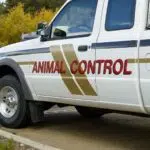Animal Control Appreciation Week is celebrated every year on the second full week of April. This year, it takes place from April 12 to 18. It’s a week when communities are encouraged to learn about what the job of animal control really entails and to be grateful for those who them. In the past, the ‘evil dog-catcher’ was something you would see often in kids’ cartoons, but this depiction only promotes children’s negative perception of the trade. In reality, animal control officers risk their lives to protect both animals that are sick or injured and humans from animals that may be violent or have contagious diseases.
History of Animal Control Appreciation Week
In 1797, the General Court of Massachusetts passed the Acts of 1797, which included the “Act To Lessen the Dangerous Evils Of Canine Madness And Other Injuries Occasioned By Dogs” and started a licensing program for dogs. Since 1934, the animal control officer’s — called ‘dog catcher’ or ‘dog officer’ until 2012 — job has been the capture and confinement of every dog within the city that is not licensed, collared, harnessed, or tagged.
The National Animal Care & Control Association was founded on September 27, 1978, to provide resources, standardized training, support, and a means of communication for all animal care and control professionals across the country. In November 1980, NACA’s first annual training conference took place in Portland, Oregon; nearly 100 members assisted, and a board of directors and officers was elected. In the early 1990s, due in part to the raccoon rabies epidemic, many cities and towns transferred animal control to the Local Board of Health. Many animal control officers and inspectors became employees of the L.B.O.H. and were tasked with enforcing its regulations as well as local bylaws and ordinances regarding animal control. This greatly improved coordination, communication, and efficiency of animal control efforts.
In January 1992, the NACA level one training program was started. Courses such as Chemical Immobilization, Defensive Driving, Euthanasia Training, Bite Stick Certification, etc., are now presented several times a year. NACA also performed its first evaluation of a city’s animal control program that year.
Animal Control Appreciation Week timeline
These include the “Act To Lessen The Dangerous Evils Of Canine Madness And Other Injuries Occasioned By Dogs” and a licensing program for dogs.
They must capture and confine every dog in their city that isn’t licensed, collared, harnessed, or tagged.
The National Animal Care & Control Association provides resources, training, support, and a means of communication for all animal care and control professionals in the country.
Because of an epidemic of raccoon rabies, many towns and cities transfer the responsibility of animal control to the Local Board of Health, which results in dog officers becoming the board’s employees and gaining the authority to enforce its regulations as well as local bylaws and animal control policies.
NACA also performs its first evaluation of a city’s animal control program this year.
The new name better reflects their role, which for many years has encompassed all kinds of animals, and their efforts to make sure animals and the communities they live in are safe.
Animal Control Appreciation Week FAQs
Are animal control officers armed?
Most animal control officers usually just carry a ‘come-along stick,’ as they call it, which is a long pole with a loop of rope to capture strays. However, they are allowed to use tranquilizers or firearms to carry out specific tasks, such as the unfortunate cases where they have to kill critically injured animals.
Are animal control officers peace officers?
Animal control officers are not peace officers, but they may exercise the powers of arrest of a peace officer and the power to serve warrants, as specified by the law, during the course and within the scope of their employment. But only if those officers complete a course in the exercise of those powers.
How can you tell if an animal has rabies?
Animals with rabies may act strangely, be aggressive, try to bite you or other animals, and drool more than usual. But you can’t tell for sure if an animal has rabies by just looking at it; you would need to perform laboratory testing.
Animal Control Appreciation Week Activities
Make sure your pet follows the proper vaccination protocols
Not every pet needs every available vaccine. Arrange a meeting with your veterinarian to find out what is right for your pet and when to do it.
Provide officers with an identification of your pet
Cats and dogs need to wear collars with I.D. tags, rabies vaccination tags, and city or county licenses where applicable. It should include your name, address, phone number, and the pet’s name. Another precaution that is encouraged is microchipping your pet because most animal shelters and veterinary clinics scan the animals for microchips. The information will help officers identify you and your animal.
Let animal control officers know that their work matters
If you see an officer patrolling the street, greet them and thank them for what they do. Write a letter to the nearest animal control center. If your city is holding a public event like an Employee of the Year award session or a press conference, why not go there?
5 Important Facts About Animal Control Officers
Animal control officers conduct investigations
They do this by identifying animal bites in the local health department, searching for lost pets, or finding out if an animal has been abused or neglected and seeking justice for them.
400 communities have embraced the no-kill model
Cities such as Austin, Texas, and Salt Lake City no longer euthanize animals after their capture as they did in the past, and many others have followed this trend.
They are first-responders
Like police officers and firefighters, their job entails being the first on the scene of an animal control emergency.
They rescue animals from fighting rings
They collaborate with organizations such as the American Society for the Prevention of Cruelty to Animals to take in animals rescued from fighting rings and make sure they get the help they need.
They relocate wildlife back to their habitats
In some rural towns, wild animals such as raccoons, coyotes, snakes, wolves, and alligators wander into human communities to raid food from trashcans or try to eat pets, and they can also spread diseases.
Why We Love Animal Control Appreciation Week
People get to know what animal control officers do
Despite how much the job has changed, the stigma of the ‘dog catcher’ still exists. Many people still assume that all animal control officers do is capture dogs and euthanize them, but they do a lot more for animals and the community than people think. Besides, as we’ve already discussed, many cities in the U.S. have embraced a no-kill rule with captured animals.
Animal control officers get some love
As we’ve said, many people don’t know how much animal control officers do for them and their animals, and some people still think negatively of these professionals. This week we show appreciation to animal control officers and express gratitude for the service they provide.
Citizens learn how to take better care of animals
Animal control officers can’t take care of everything! Owners have a responsibility too, and that’s another way of showing appreciation. Officers say that their biggest challenge is people’s usual reluctance to call them if there’s a problem. Don’t think of animal control as a last resort; it should be your first.
Animal Control Appreciation Week dates
| Year | Date | Day |
|---|---|---|
| 2024 | April 14–20 | Sunday–Saturday |
| 2025 | April 13–19 | Sunday–Saturday |
| 2026 | April 12–18 | Sunday–Saturday |

































